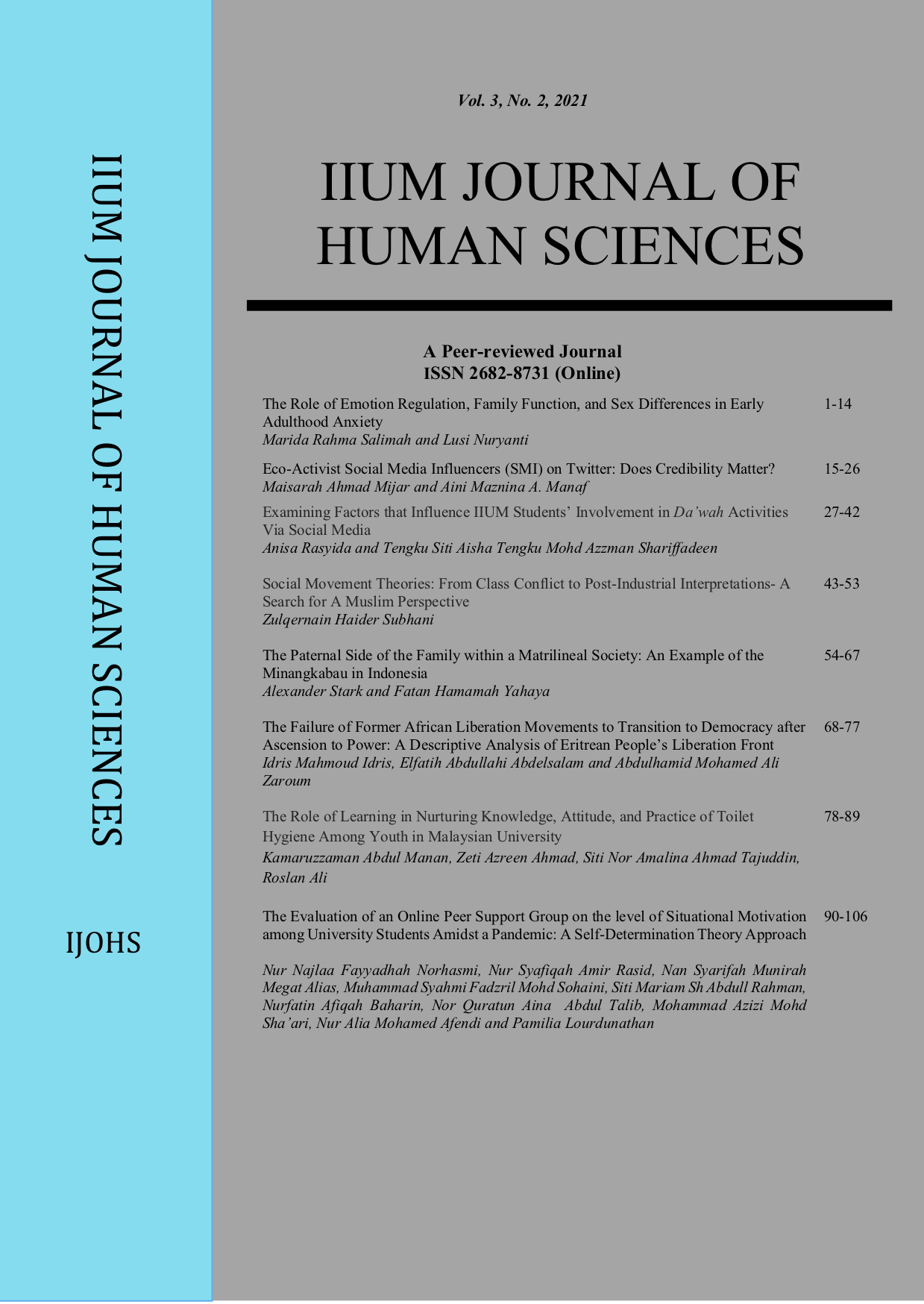The Evaluation of an Online Peer Support Group on the Level of Situational Motivation among University Students Amidst a Pandemic: A Self-Determination Theory Approach
DOI:
https://doi.org/10.31436/ijohs.v3i2.202Keywords:
Situational Motivation, Peer Support Group , Self-Determination Theory, SIMS scaleAbstract
During the Covid-19 pandemic, many students have reported a loss of motivation while
pursuing remote learning. The loss of motivation can be attributed to various factors,
among which are a loss of social support, such as from friends and lecturers, in
completing their assessments. This study aimed to help IIUM undergraduate students to
increase their level of motivation through online peer support group sessions using a
Sport Psychology approach. The Self Determination theory was adopted as a framework
in guiding the process of the research. This study also employed two other psychological
techniques which are a cognitive behavioural approach and a relaxation exercise. A total
of 13 undergraduate university students of IIUM from different faculties were selected
using a convenience sampling method based on their voluntary participation in the peer
support group. The participants were required to answer two online surveys and commit
to joining two online peer support group sessions. The first online measure used was
conducted as a need analysis to assess their level of motivation. This measure comprised
demographic information form, an informed consent form, and a few qualitative openended
questions related to their level of motivation. This yielded useful indicators for the
content of the peer support group sessions while the second online measure was used as
a pre-test and post-test measure using the Situational Motivation Scale (SIMS). The data
collected using the online questionnaire was measured using a paired sample T-test to
evaluate the effectiveness of the online peer support group sessions on the level of
situational motivation among IIUM undergraduate students. The findings of the study
showed that although there was no statistically significant difference in the pre-test and
posttest results of the SIMS scale, interestingly qualitative findings from the participants
yielded positive results which were evident through several meaningful emergent themes
that were obtained from the feedback of the participants post intervention. It is hoped that
the planned initiative of peer support groups will be expanded to include more students
in order to help prevent any further progression of loss of motivation and secondary crisis
of compromised mental health in those who have suffered from self-isolation, physical
distancing, and quarantining.










